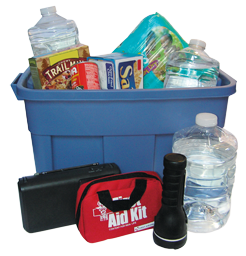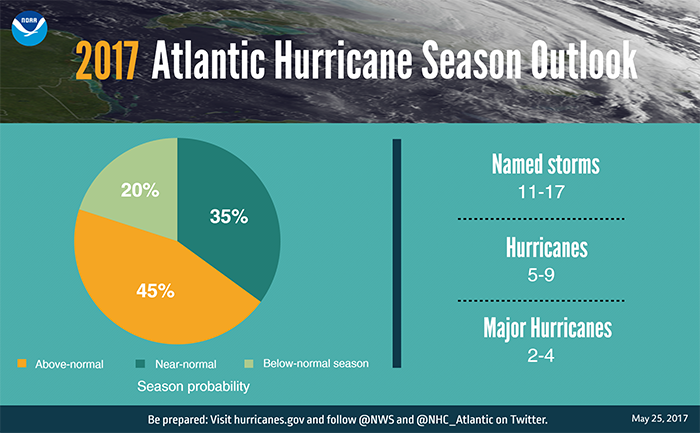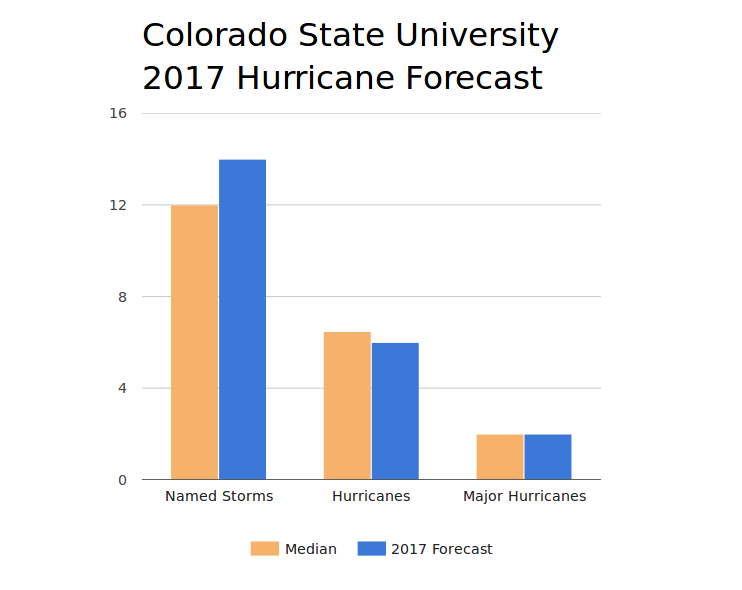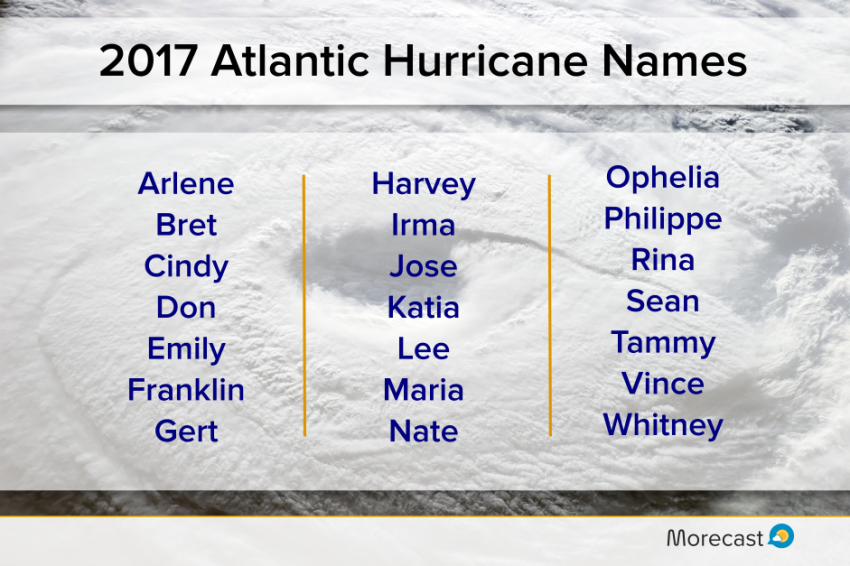June 1st marks the first day of the Atlantic Hurricane season. Know your hurricane facts and be prepared this hurricane season!
Preparing for Hurricane Season
Regardless of this season’s forecast, it is important to first cover the proper way to prepare for hurricane season. All it takes is one hurricane to cause devastating and deadly impacts. Having a plan in place and making the necessary preparations can keep you and your loved ones safe.
The Federal Emergency Management Agency (FEMA) has provided the following safety tips:
- Find out if you live in an evacuation area or if your home may be more susceptible to damage from hurricanes.
- Plan where to go and know your hurricane evacuation route in the event of a hurricane.

- Create a disaster supplies kit including water, non-perishable food, battery-powered radio, flashlight, batteries, first aid kit, and cash.
- Make a family plan. Decide on a meeting place or safe location.
- Plan how to reach each other in case cell phones or landlines are not an option.
- Don’t forget about your pets. Locate possible shelters or pack pet supplies in your disaster supplies kit.
2017 Season Forecast
How many storms occur in a season is primarily based on the presence of El Niño or La Niña, wind shear conditions, and sea surface temperatures.
In the Atlantic ocean, El Niño conditions typically lead to greater wind shear, which can hinder storm development. Uncertainty in weather models make it hard to predict if there will be an El Niño this year. However, a neutral state or weak El Niño is the most probable outcome, meaning there will likely be little impact on this year’s storms.
Warmer sea surface temperatures help fuel hurricanes so the warmer than average temperatures in the Atlantic Ocean are likely to impact storm development this season.
Based on these factors and research by the Climate Prediction Center (CPC), this year’s forecast calls for a slightly above average season. The CPC predicts 11-17 storms, with 5-9 becoming Hurricanes, and 2-4 of those reaching category 3 strength or higher. They also predict a 45% chance of the 2017 season being above normal.

Colorado State University (CSU) also creates their own hurricane season forecast. They predict a total of 14 named storms, 6 hurricanes, and 2 major hurricanes, similar to the CPC’s forecast. CSU calculated a 55% chance of a major hurricane making landfall along the U.S. coastline. A major hurricane – defined as a category 3 or higher storm – has not made landfall in the U.S. since Hurricane Wilma in 2005.

Overall, scientists are in relative agreement for an above normal hurricane season. However, these long term forecasts reflect an overall picture of what to expect. They should be taken with a grain of salt. No matter the forecast, residents in a hurricane prone area should prepare for the worst case scenario. Even a weaker storm, such as Super Storm Sandy, can cause massive damage and loss of life.
Hurricane Names
One thing meteorologists know with 100% certainty are the names of this year’s tropical cyclones. The World Meteorological Organization cycles through six lists of hurricane names, with particularly impactful or deadly storm names retired. The last time this year’s storm names were used was back in 2011, with Irma now replacing Irene.

Updated Forecast Warnings
This year, the National Hurricane Center will make two major changes to their tropical cyclone forecasts.
The first change will be separate storm surge watches and warnings. Storm surge causes many of the fatalities associated with hurricanes. Separate warnings for will provide residents with a better idea of what to expect and prepare for.
The second change will be “potential tropical cyclone” warnings. If a storm looks likely to become a tropical cyclone within 48 hours, the National Hurricane Center can now issue watches and warnings for these storms. Since many storms can rapidly develop into a hurricane, this will give residents more lead time to plan and prepare.
The Morecast team will be closely monitoring the tropics this hurricane season and providing up to date information on any potential tropical cyclones. Make sure to follow us on Facebook and Twitter for hurricane forecasts and updates.
